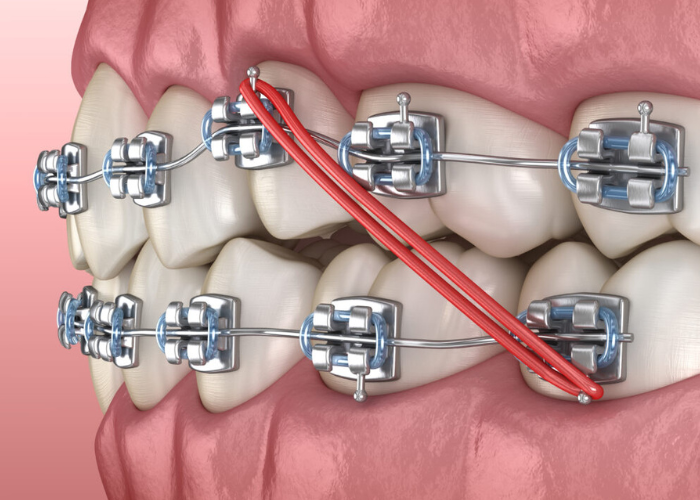Why are elastics important to wear?
In orthodontics, elastics (also called rubber bands) are small latex bands that stretch to help move teeth, correct the bite and adjust the jaw alignment – making them crucial to the success of your treatment!. You may have heard your doctor mention overbite, underbite, open bite, or cross bite during your initial consultation. Wearing elastics helps to correct the misalignment of your bite.
Are there different types of elastics?
Elastics have different types of force, such as light, medium, and heavy. There are also different sizes of elastics, including ⅛ inch, 3/16 inch, ¼ inch, 5/16 inch, and ⅜ inch options. The force and size of your elastics will be referred to by various animal names, like “parrot” and “cheetah” elastics. Each patient that needs elastics during their treatment will also be given specific instructions on how to wear them. The instructions you are given can be very different from how some of your friends may have been told to wear their elastics, so be sure to listen carefully and follow the directions given at your appointment!
How long do you wear the elastics?
The more you stretch your elastics throughout the day, the less elasticity they have. This means the strength, or force, of the elastic is decreasing. As a result, you’ll need to change your rubber bands multiple times per day. Overall, the total time you need to wear elastics is determined by the doctors and you will be instructed on how long you will need to wear them for. Remember, if you don’t wear your elastics as instructed, you will end up prolonging your treatment time in the long run. If any of your elastics break or come off, simply replace it with a new one. We recommend carrying a package of your rubber bands with you at all times!
Important reminders!
Be sure to thoroughly brush your teeth after every meal! Food can get trapped in your braces very easily and lead to plaque build up. Flossing will help remove food that is harder to remove or reach with your toothbrush. You’ll receive a special threading tool that will help you floss around your braces. As always, avoid foods that are crunchy, hard, or sticky, as these can cause damage to your braces!
As always, if you have questions about your elastics, or anything pertaining to your treatment, give us a call!
Check our more blog posts about all things orthodontics here!


